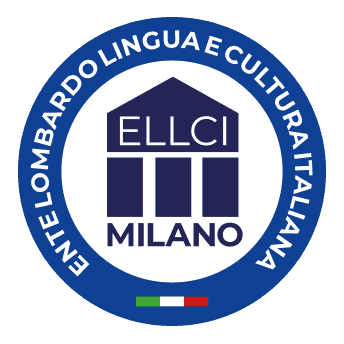
13 Nov
Dialects in Italy
In Italy there are many cultural riches, we know. Among these there are certainly the dialects, which have followed a development process starting from the local vernacular Latin of a given area and represent one of the most beautiful and characteristic features of each Italian territory.
How many dialects are there in Italy
Born as languages of a territory that, until just over 150 years ago was anything but united, the dialects are numerous and are still preserved today in an almost entirely oral form. Among the most famous dialects we certainly find the Tuscan, the Venetian, the Sicilian and the Neapolitan, also for the large amount of literary and theatrical works we have.
If you like history and linguistics a little, you have surely heard – from some Tuscans – that pure Italian is spoken in Tuscany. Without exaggerating patriotism, we can certainly say that the Tuscan dialect was the source of cultured Italian, from which it all began. Dante, Petrarca and Boccaccio, the forefathers of our literature, are the first who began to regularize Italian and to use the vernacular also for literary , of those who could be educated and therefore of very few people).
The advent of the literary vernacular has also given rise to the “question of language”, or the dispute over which linguistic model to use in the Italian peninsula, which has been discussed for centuries. It was definitively resolved by Alessandro Manzoni, the author of the Promessi Sposi, in the mid-1800s, who decided to “rinse the clothes in the Arno” and declare the contemporary Tuscan officially Italian.
The Italian, however, despite the long list of Enlighteners who have tried to make it culture for everyone since 1700, began to be truly in the public domain only after the First World War, despite education up to 7 years (with the Casati Law) was already mandatory since 1859. A portentous event such as a world war, in fact, forced at least the Italian soldiers of all regions to communicate in a lingua franca … and which one, if not the Italian ready and available?
With the advent of television, finally, the illiteracy rate, which at the time of the unification of Italy (in 1861) was 78% with peaks of 90%, dropped dramatically, and Italians finally entered even the most distant and rooted in their local reality. (Almost) everyone now understood Italian!
In any case, people continued to communicate in family and intimate contexts in dialect, certainly a language of affection. Even today it is the same for many regions, even if unfortunately young people know it less and less. A very serious fact, as the characteristic of dialects is precisely that of being transmitted orally and like all languages it must be practiced daily to maintain it. And then, let’s not forget: the dialect is considered a cultural heritage of humanity, as a fundamental part of the identity of every community.
However, we must take note of the fact that in Italy there are an almost innumerable number of dialects, as well as accents, all wonderful. Take into account that sometimes, moving only a handful of kilometers from one city to another, the inhabitants who use the dialect do not understand each other!
Here are some of the nicest.
The romanesco
The Roman dialect, also thanks to the Cinema industry – in Rome there are the most important film studios, those of Cinecittà – is well recognized and easily imitated by all Italians, who use typical interlayers such as the “aò” to recall someone . The Roman dialect is often considered only a ‘spoken’ (an accent) rather than a real dialect, because the syntax and vocabulary are very close to Italian. One of its main characteristics is for example the systematic doubling of the “b” [b], of the “g” [ʤ] and sometimes of the “d” [d] in all positions except after the consonant. Typical of the Romans is also to cut verbs in the infinitive or to shorten or compress words. A great challenge for those studying Italian.
The Apulian (pugliese)
The Apulian dialect is certainly one of the funniest, known above all thanks to some comedians beloved by Italians, such as Lino Banfi in his golden age or the younger Checco Zalone. The dialects of Puglia do not form a homogeneous group at all, as happens instead for the dialect of other regions, and there are at least two groups of dialects, those of the intermediate southern group and those of the extreme southern group. Try typing Foggia dialect, Bari dialect or Salento dialect on YouTube and let us know what you understand (a little, probably) and all the infinite differences you can grasp. Meh!
The Milanese
The Milanese, often mistreated and juxtaposed – rightly – to the French, also has many funny sides, highlighted here too by a well-known actor who has also become an icon of the collective imagination: Renato Pozzetto. How can you forget your TAAAAC? HERE is a funny video where you can discover the meaning of this Milanese expression, often used humorously to describe something done perfectly.
Milan, where ELLCI is located, is a very welcoming city, despite the bad reputation it often enjoys. In fact, it is said: milanes cunt el cor in man (lit. Milanese with heart in hand). If you come to Milan and want to integrate perfectly with the speakers of the area, you can do something simple and grammatically very wrong, that is to put the article in front of proper names. Only in this way will THE Carlo or THE Martina be your new friends. T’è Capì?
Sardinian (language of Sardinia)
If we talk about Sardinian, we really have to roll up our sleeves: very similar to the Catalan language, it certainly has a Latin basis but retains in its vocabulary a linguistic substratum of the ancient Sardinians. A Sardinian proverb says: Si ti queres sanu, faedda pagu (If you want to remain unharmed, speak little), so let’s close it here. Ajò!
If you want to deepen the history of Italian dialects, you want to learn expressions and distinguish accents, sign up for one of our advanced level courses!
